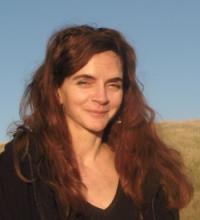What Is It
We like to think of ourselves as self-aware, reflective beings, but psychological studies demonstrate that we’re usually overconfident in the accuracy of our own beliefs. Memory, for example, can be extremely unreliable, even when we feel certain we know what happened. Surprisingly, when we’re made aware of this, we adjust our level of confidence in ourselves only slightly. How, then, can we doubt ourselves in a rational and efficient manner to bring our beliefs closer to reality? And, just as importantly, how do we prevent ourselves from falling into the other extreme of constant second guessing? John and Ken don't think twice with Sherri Roush from UC Berkeley, author of Tracking Truth: Knowledge, Evidence, and Science.
Listening Notes
The show opens with John and Ken debating when it is appropriate to second-guess oneself. John talks about the cyclical nature of second-guessing, where once you start you can never really put an end to questioning yourself. Ken brings up that second-guessing is not all-or-nothing; it does not entail always sticking to your beliefs but it also does not entail never sticking to said beliefs. John asks Ken whether he has a method for determining which beliefs to second-guess and also makes a distinction between second-guessing and reconsidering old beliefs. Ken talks about doubts of one’s own reliability and about when it makes sense to second-guess yourself. John wonders whether Ken is painting indecisiveness as an epistemic virtue. Ken introduces Natalie Jones’ Roving Philosophical Report, which he believes will help John reconsider his positioning.
John and Ken welcome guest Sherrilynn Roush, Professor of Philosophy at UC Berkeley (now at King’s College London) and author of Tracking Truth: Knowledge, Evidence, and Science. John first asks Sherrilynn how she became interested in the topic of tracking the truth. She explains that she was always good at self-reflection, but she also realized that constant introspection may not always be a positive thing, so she wanted to explore the topic further. Then, John asks Sherrilynn to define second-guessing and to explain why maybe it is not such a bad idea, as suggested the Roving Philosophical Report. The importance of evidence is also discussed: Sherrilynn speaks about two different kinds of evidence: evidence that we base our beliefs about the world on and evidence related to ourselves and our judgment. So whether a person second-guesses him or herself depends on the evidence of either kind.
John and Ken encourage audience participation and discuss several questions, including how we can get better at assessing our own abilities to make good judgment and decisions, confirmation bias, whether one can ever run out of evidence, and the difference between second-guessing about the right decision and the best decision.
- Roving Philosophical Report (Seek to 6:25): Philosophy Talk's Reporter Natalie Jones speaks with Derrick Wirtz, Associate Professor at East Carolina University, about the old belief that students should not second-guess themselves when taking an exam. She also speaks with other experts in the test-taking fields; second-guessing, the researchers suggest, might actually be positive and lead to better test results.
- 60-Second Philosopher (Seek to 46:34): Ian Shoales does all but second-guess himself in his speedy philosophy about the prevalence of second-guessing.



